Former Russian Commander: "The unceasing West aggression in Ukraine leaves Russia no other option but to take Zelensky out"
Foreign Minister Sergey Lavrov’s remarks and answers to media questions during a news conference following the High-Level Week of the 78th session of the UN General Assembly, New York, September 23, 2023...
Ladies and gentlemen,
Thank you for your interest in the work of the Russian delegation. I am confident that you are familiar with the statements that we delivered at the UN Security Council meeting on September 20 as well as today’s General Debate of the General Assembly. Our objective was to convey in the clearest possible way our country’s vision on the developments in international relations as well as our understanding of what needs to be done to ensure that the problems that have accumulated in an unprecedented way in these relations could somehow be resolved, first and foremost through seeking agreement on the basis of our mutual respect of all states without exception.
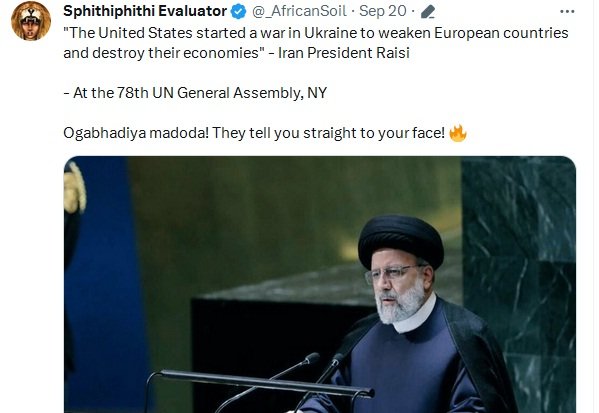
This policy is receiving increasing support from countries in the Global South; however, it is facing resistance by the collective West, which is a global minority that seeks to maintain their dominance or expand their hegemonic position in politics, economics, the information space, culture, and sports through disingenuous methods.
While meeting with our colleagues from Asian, African, and Latin American countries and while responding to their questions, we spoke in detail about specific aspects of the current state of the European security crisis, which is the result of the West’s years-long efforts to transform Ukraine into ‘anti-Russia.’ They were preparing to drag this country into NATO; the Kiev regime, which had come to power through a coup, was encouraged to create direct threats to the security of the Russian Federation on our borders and to annihilate everything Russian in Ukraine – in its laws, education, mass media, culture, and so forth.
This is an ongoing security crisis in Europe. Hopefully, politicians who are capable of noticing and analysing facts will draw certain conclusions from current developments. These politicians are few, but they are still there.
We can see the firm position of the Global South and the World Majority on upholding their national interests. From this standpoint, they are unwilling to join anti-Russian sanctions and engage in various West-initiated campaigns whereby people are literally pushed into attending certain events in order to speak out in support of Ukraine while at the same time condemning and demonising Russia.
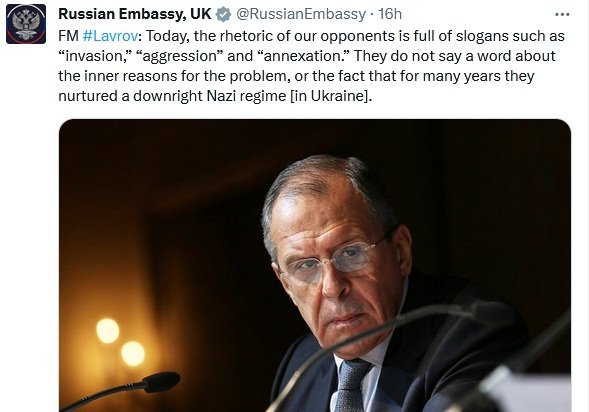
We are guided by our national interests. All those who act this way are Russia’s prospective partners. I have held more than 30 meetings on the sidelines of the High-Level Week of the 78th session of the UN General Assembly, where my colleagues and I discussed prospects for bilateral relations. Together with our friends, we have plenty of new interesting projects that we are ready to implement on the basis of mutual benefit. We will continue cooperating within BRICS. There have also been separate meetings of BRICS, SCO, CSTO and CICA foreign ministers. We expect that all these regional associations will proactively support the UN reform process, giving it more sustainability and legitimacy, including within the ongoing discussions on the Security Council reform, which we support.
I will now stop my soliloquy and will answer your questions.
Question: If the President of Ukraine withdraws the decree that prohibits negotiations with Russia, would Moscow sit down at the negotiating table and on what conditions? Do you want the UN to lead the process?
Do you think that the presidential elections in Russia could become an obstacle to possible peace negotiations before March 2024? How do you evaluate the “peace summit” announced by Ukraine against “Russian aggression”?
Sergey Lavrov: This question is easy for me to answer, because it consists of assumptions and subjunctive declinations – and we are not led by fantasies. Vladimir Zelensky has not yet canceled his decree. Nobody intends to provide him with any such engagements. He runs around the globe asking for money, weapons, attention, and so on. These are not our principles.
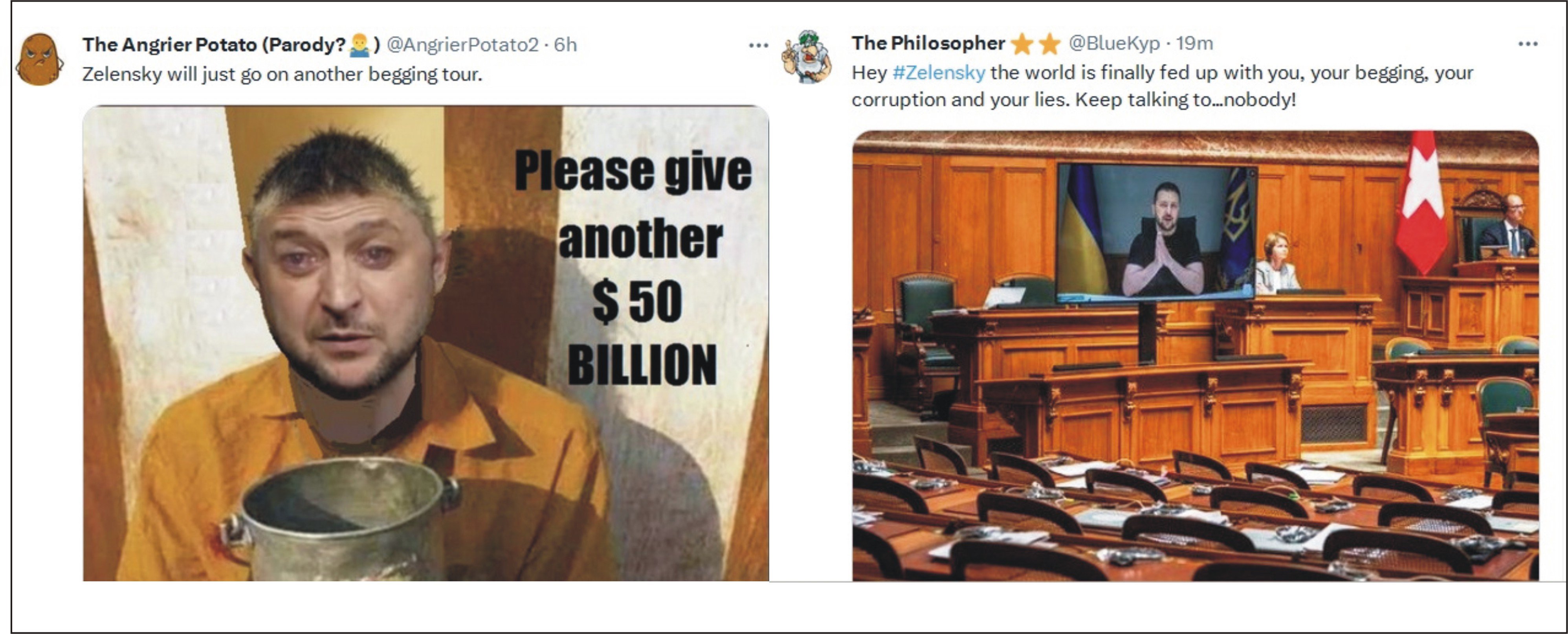
What we are guided by is bare truth: the President of Ukraine and everyone who governs him in Washington, London, and Brussels firmly say that there is no other basis for peace other than the ‘Zelensky format.’ This ‘format’ can be described in different ways, but it is unfeasible. Everyone is aware of this. But at the same time, they say that this is the only basis for negotiations, and in general Russia must be vanquished “on the battlefield.”
This is what we hear as facts. We have drawn the conclusion that no one is willing to show serious understanding of what is happening, including those who understand but do not want to do so publicly. Under such circumstances, when they say “on the battlefield” – well, let it be on the battlefield.
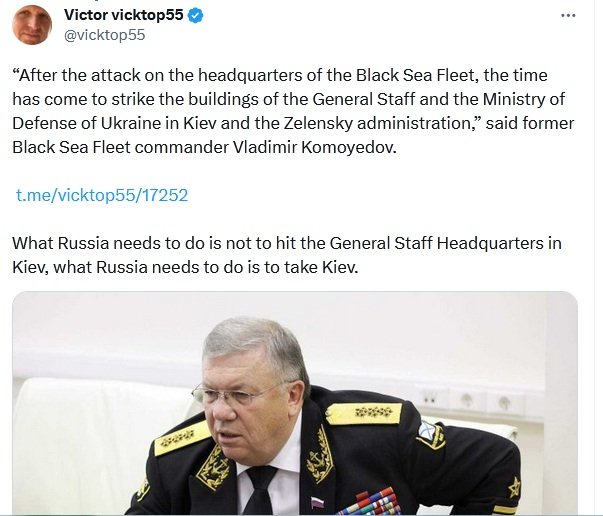
Question: During his statement at the Security Council, UN Secretary-General Antonio Guterres announced that Russia is allegedly abducting children from Ukrainian territory. After that, you had the opportunity to speak to him. Was it possible to clarify what he meant and what data he is basing his claims on? What is your assessment of the bias of an individual who heads an international organisation that has Russia as a founding member?
Sergey Lavrov: Many were surprised by the statement from UN Secretary-General Antonio Guterres at the Security Council session. Along with other unfounded allegations on the current developments in Ukraine, he suddenly decided to deliver an extensive passage on the children who have gone missing, been abducted, are being concealed and starved, and so on.
It was particularly surprising to hear this in reference to children. UN Secretary General’s Special Representative for Children and Armed Conflict, Virginia Gamba, visited Russia in May when she spent several days engaging in thorough discussions and meetings and received clarification of issues that were of concern to her. All answers were provided, including during a meeting with Russian Presidential Commissioner for Children’s Rights Maria Lvova-Belova, with whom we closely interact.
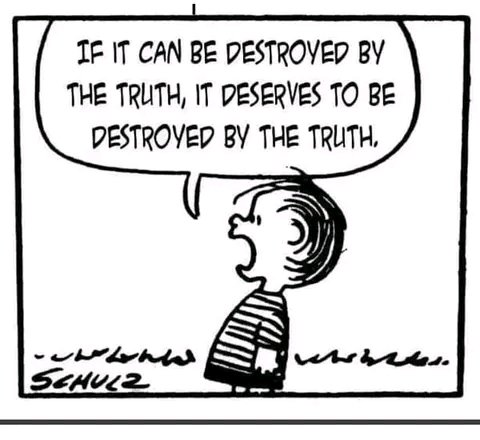
Upon hearing Antonio Guterres’ statements at the UN Security Council and then during the negotiations with him, among other issues, I asked him what facts his allegations are based on, because no references were made. I have yet to receive his response, but I asked him to provide it. This is a serious matter.
As it happens, every year we have some new unaddressed questions that arise in our relations with Antonio Guterres. When the latest dimension of the Ukrainian issue was discussed at the UN Security Council back in 2022, accusations were made against Russia in connection with the tragedy in Bucha. By then, six months had passed; I clearly stated that we were making unsuccessful attempts to figure out what had happened there. For starters, we wanted to get a list of the names of people whose bodies were shown to the whole world, causing another outburst of anger, sanction lists, and so on. I said that no one could give us the response.
We approached different structures. In the presence of all members of the Security Council and other UN member states, I asked Antonio Guterres to use his capabilities and authority to do something quite simple: to obtain a list of the names of those whose bodies were shown in Bucha. We still have not received anything. Nor have we received explanations on a number of other issues, starting with the Skripal poisoning. No documents were provided. As regards the “poisoning” of Alexey Navalny, Germany claims it will not allow us to see the test results. The OPCW says they have the results, while Berlin has forbidden their release. Why?
That is an interesting question. You could initiate a journalistic investigation into the events that are much more recent than murder of US President John Kennedy (which has yet to be fully investigated as well). But nevertheless, they were used by the West to create a certain atmosphere in international discussions, using fakes to advance decisions that have nothing to do with reality and prospects for implementation.
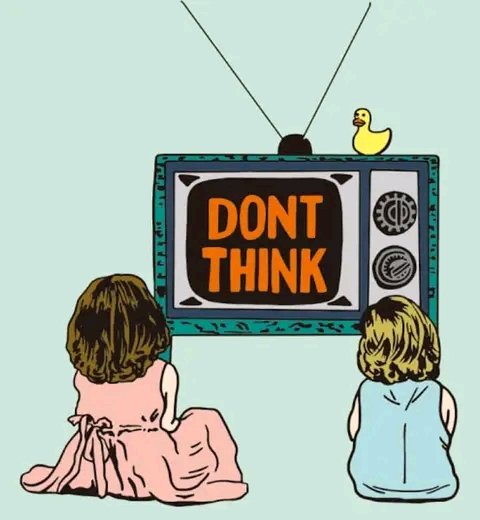
As regards the Malaysian Boeing downed in July 2014, here is a simple question we cannot receive an answer for either: when the investigation started, Russia provided satellite and radar data. The Ukrainians said their radars were not working on that day. The United States claimed that their satellite data confirmed the jet was shot down by the Russians, but they would not share this data with anyone. While looking into the issue, the court in the Netherlands said there was a confirmation from the United States – namely, data from satellites. When asked by lawyers where it was, they said this data was confidential: Washington did not provide it, but The Hague claimed it had no reason to disbelieve the United States. In addition, 13 prosecution witnesses remained anonymous and were not shown to anyone. Not similar to Bucha (I hope they are all alive), but there were no names provided. The names of the Boeing case witnesses have not been revealed either.
To return to the question of children, we expect Secretary-General Antonio Guterres to substantiate his statements. He must act on behalf of the UN Secretariat as its chief administrative officer, as stated in the UN Charter, without any departure from Article 100, which states that the Secretary-General and the staff must perform their duties in an impartial and neutral way and shall not seek or receive instructions from any government. We are waiting for answers.
Question: You have mentioned Ukrainian children. According to Kiev, the International Criminal Court and other prosecutors, the number of children taken from Ukraine is about 19,000. A few hundred have been returned. I can show you videos, there are specific examples of an interview with some children who escaped. When does Russia plan to cooperate with the UN Secretary-General’s Special Representative for Children and Armed Conflict, Virginia Gamba, or begin to return these children?
Sergey Lavrov: I have just mentioned that Virginia Gamba visited us, spent several days and met children evacuated from the conflict zone. We continue to be in contact with her.
I saw various videos you are referring to. We know how these videos are made. They also showed a video of Bucha, with bodies lying in the streets. So what?
We have repeatedly seen information disseminated about what is actually happening to children. As regards your video, I will definitely ask our Mission to send the materials to you that we have repeatedly distributed, including to the UN, explaining that the list of all children without parents is publicly available (unlike the Bucha case). There is a list of children who are alive that includes contacts of those willing to help these children to reunite with their parents or close relatives in the event they make themselves known. This is something I have repeatedly explained. We will definitely forward these materials to you.
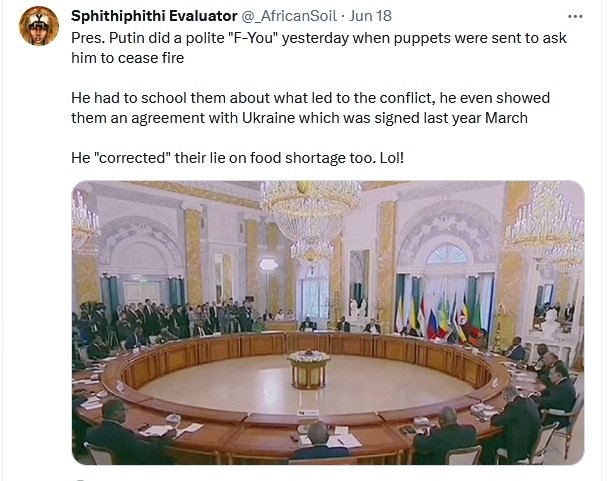
Question: But I am not talking about Bucha, but about the children on the list...
Sergey Lavrov: I just addressed this, but you probably were not listening. Unlike Bucha (where no one mentions any names), we made the last names of children who are alive (thank God) public a long time ago. We are waiting for any of their relatives to show up and confirm that they are related, and then they can immediately take their child. The majority of these kids are those who lived in orphanages, sent there by parents for various reasons. When the special military operation began, we took them to safety – but we neither hid the names of the kids who were taken away nor their location. We have always invited and continue to invite parents, if they show up, to come and retrieve their children. You could travel there and talk with these children yourself to get a better understanding.
Maria Zakharova: I would like to tell CBS that a press conference by Russian Presidential Commissioner for Children’s Rights Maria Lvova-Belova is scheduled for October 16. We invite you to take part in it; you can ask all your questions. If you send some materials in advance, she will gladly comment on them.
Question: In your speech, you mentioned it is time to restore mutual trust between Armenia and Azerbaijan. Yet, what we have seen this week was some blame-gaming from Armenia and anti-Russian protests in Yerevan. Has Russia lost its influence in the region or is it waning, given the military conflict in Ukraine?
Sergey Lavrov: It is not up to me to judge. It would be arrogant to say that our influence is increasing in the region while remaining the same in another region. It is up to you to make such conclusions. Many things are becoming more obvious right in front of our eyes.
The fact is that there is a very powerful lobby in Armenia, as in a number of other countries of the former Soviet Union, represented by non-governmental organisations (including those set up through many western foundations) that advance the interests of the United States and its allies, seeking to undermine Russia’s influence there. There are plenty of such organisations there.
When previous unrest occurred, Nikol Pashinyan spoke out against the former government and demanded justice; all this could be seen. We view this as artificially created tensions. We know who is interested in this and who the mastermind behind this is. Regrettably, the Armenian leadership adds fuel to the fire on a regular basis.
For instance, Prime Minister of Armenia Nikol Pashinyan and President of Azerbaijan Ilham Aliyev, under the auspices of the European Union, signed a document that recognised each other’s territorial integrity within the 1991 borders. This means Nagorno-Karabakh is part of Azerbaijan, plain and simple.
While signing the document under the auspices of the European Union, they forgot to add that the rights of the Karabakh people as an ethnic minority should be ensured. When attention-grabbing discussions began in Armenia’s society (which have recently arisen again) about what actually happened and who gave Karabakh to whom and who did not, the head of the Armenian parliament unabashedly stated that Nagorno-Karabakh was given to Azerbaijan by Vladimir Putin back in November 2020 when we signed agreements to end the 44-day war. In case you are concerned about the issue: those agreements stated that Karabakh was within the area of responsibility of the Russian peacekeeping contingent. It was presumed – and this was stated during the negotiations – that the status of Nagorno-Karabakh would be postponed to be considered at a later date. After Armenian Prime Minister Nikol Pashinyan signed a document acknowledging Karabakh as part of Azerbaijan, [it is ludicrous] to accuse us of doing this.
Unfortunately, there are plenty of such politicians there. We are roughly aware of their background. We are strongly convinced that the Armenian people remember our common history and connect their history with Russia and other friendly countries – first and foremost, the countries in this region rather than those overseas.
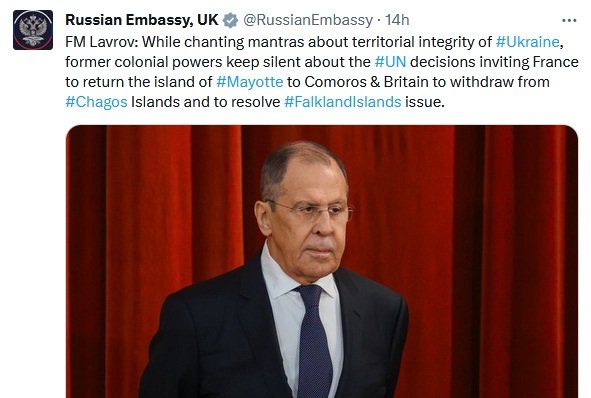
Question: Could you please explain what is the purpose or value for Russia of continuing its participation in the UN, given the isolation that you have experienced here and the criticisms of structures within the UN and the world order represents, and even obviously Russia’s violation of the central principle of non-violation of territorial sovereignty?
Sergey Lavrov: Since our last meeting, CNN’s questions have become even easier.
I work because there are things to be done. If you want to describe isolation, feel free to do it. You can see our delegation meeting with others here, engaging in activities, and taking part in multilateral events.
We work with those who have respect for themselves and will never betray their national interests just because someone from Washington told them to do so.
We know how American diplomats travel across the globe and prohibit meetings with our diplomats and Russian representatives in general.
I will put it this way: the United States is a superpower. This is obvious to everyone. But running around like that, threatening everyone just to show your obsession with domination, is shameful for such a great nation.
We work with those who are ready to interact with us. To be honest, I did not have time to be bored. Yesterday, I started work at 8 am and finished it at 8 pm.
Question: A question on the Black Sea Initiative. Your Western colleagues accuse Russia of using food as a weapon, but are unwilling to extent negotiations on the deal. What is your response? Have you spoken with UN Secretary-General Antonio Guterres on this?
It has been a year since the Nord Stream gas pipelines explosion. We see general silence in connection with this fact. Is the UN shying away from expressing concern on this issue? Do you have any new findings?
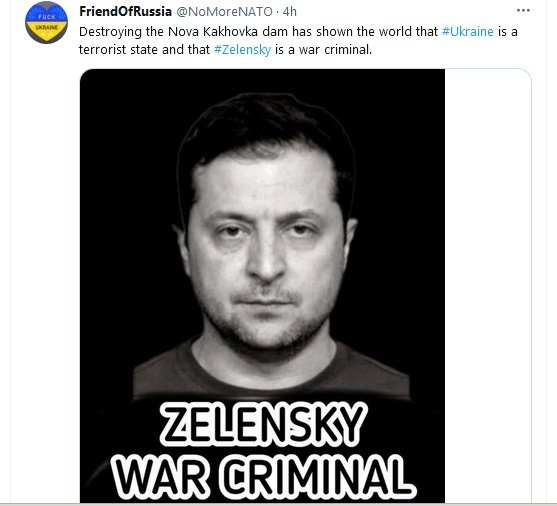
Sergey Lavrov: The Black Sea Initiative consisted of two parts. This package was a result of negotiations, reflecting all the interests of the parties together with the interests of other participants. But while the Ukrainian part of the package was implemented rather promptly and efficiently, the Russian part was not carried out at all.
At the same time, while the Ukrainian part of the initiative was still functioning, those Black Sea corridors that our naval officials opened for the safe passage of vessels carrying grain were used several times to launch USVs to attack Russian ships. We issued warnings several times, but this was not stopped.
But the main reason for us to withdraw from the grain deal and it ceasing to exist was that everything that had been promised to us turned out to be deception.
I respect the efforts of UN Secretary-General Antonio Guterres and Secretary-General of the United Nations Conference on Trade and Development (UNCTAD) Rebeca Grynspan. They are making a genuine effort. However, we have not seen our Rosselkhozbank placed back on the SWIFT system, nor have we seen a solution for Russian ships’ unhindered entry into ports (primarily Mediterranean and other European ones), or a solution to the issue of insurance that has surged fourfold; a host of other problems was left unaddressed as well.
The Ukrainian part of the package, signed in 2022, included a commitment to restore ammonia shipments as part of expanding fertiliser exports. You all know that even before our withdrawal from the initiative, the Togliatti-Odessa ammonia pipeline was blown up. As is the case of Nord Stream, no-one has bothered to remember this ammonia pipeline or launch an investigation.
As for Nord Stream pipelines, this is yet another example (and I simply cannot list them all) of sweeping the most essential facts under the rug and plotting another lie for building their further geopolitical schemes. This all is on the list – Bucha, Salisbury, Alexey Navalny, as well as Nord Stream and the Togliatti-Odessa ammonia pipeline. These are very serious matters.
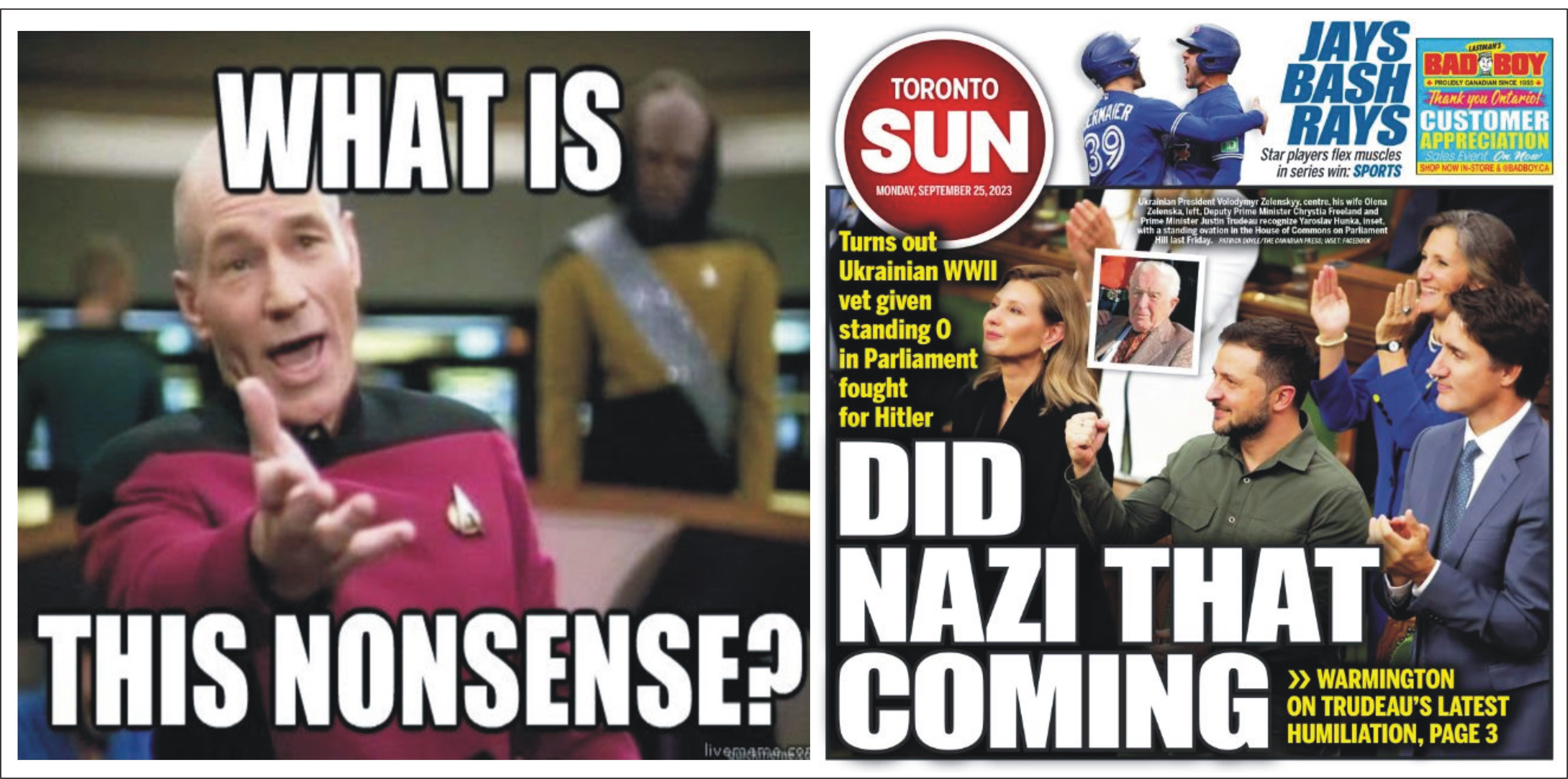
To return to the grain issue, we continue working with both Antonio Guterres and Rebeca Grynspan. But I was somewhat surprised to hear the Secretary-General, in his interview ahead of the General Assembly session, say that he was still seeking implementation of the UN-Russia Memorandum to begin using this corridor for Russian fertiliser and grain exports. Yet, in all his actions, he never departs one iota from the regime of restrictions, nor does he violate the regime of unilateral sanctions illegally imposed by the Americans and their Western allies on Russia. This is a telling answer. He is aware that there is nothing he can do. For over a year, they have made it clear to him that sanctions would by no means be eased in order to implement this part of the package. He is looking for some artificial ways to get around the sanctions, admitting that he has to operate within these restrictions.
This is how instead of Rosselkhozbank we have some other branch in Luxembourg that does not even have a banking license, and we see attempts to achieve one-off bank transfer agreements with US banks. So, what they offered to us essentially means that the Ukrainian part of the deal would be resumed tomorrow, while our part of the deal will be in discussions for a couple of months in order to reach some solution.
Question: In the follow-up to the Black Sea Grain Deal questions, as you’ve mentioned the Secretary-General sent you a fairly detailed letter with full proposals asking Russia if you would agree to those and commit to resume the Black Sea Deal once those four proposals were put in place. Have you formally agreed with the Secretary-General to move ahead with those, one of which was connecting a subsidiary of the Russian Agricultural Bank to SWIFT?
Sergey Lavrov: I have already answered a question regarding the UN Secretary-General’s letter. He said himself that his proposals were not meant to ensure that sanctions would be lifted, but rather, that we could find “ways” to avoid violating those sanctions.
You have mentioned a Luxembourg subsidiary of Rosselkhozbank. Antonio Guterres said that if we reached a deal, if the Ukrainian part of the deal were given the green light “tomorrow”, then this subsidiary would be reconnected to SWIFT in two months. First, the subsidiary doesn’t even have a banking license. Second, it has been out of operation and is now being closed down. This tells you a lot about how deep UN experts have researched the issue.
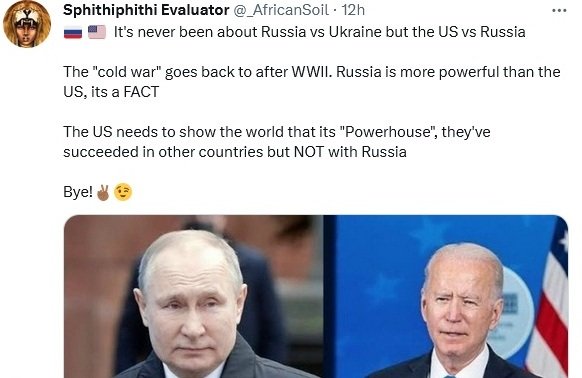
Question: And on Nagorno-Karabakh, will Russia send more peacekeepers now?
Sergey Lavrov: Our peacekeepers are there now helping to keep the communication lines open between Karabakh representatives and Azerbaijani officials. A meeting between them took place on September 21. Our peacekeepers are there because they play an important role to promote trust in order for the people of Karabakh to feel safe and secure, especially at the early stages.
As for how long they will remain there, and how many will be needed, these are questions that are being decided on the ground, in Karabakh.
Question: Would it be accurate to say that Russia has formally rejected the Secretary-General’s proposal that was in that letter?
Sergey Lavrov: If it’s imperative for you to write some rubbish and the word “rejected” appeals to you so much, you are free to do as you please. We have made it clear to the Secretary-General why his proposals are not feasible. We are not rejecting them. They are impossible to implement in and of themselves. Please write something that is factually true next time.
Question: When it comes to the recent attacks on Crimea, there was a US reconnaissance plane that was spotted in the area. That points the fact that the US could have been directly involved providing data. In addition to that, we now have this promise from Biden to send the long-range ATACMS missiles. So, at what point does the United States become a party to this conflict? At what point does this actually become a direct conflict with the United States, not simply a proxy conflict via Ukraine? When do we define the United States as being involved?
Sergey Lavrov: There are legal norms that define a country as being a direct party to conflict. Western countries are doing their best to avoid mentioning them. They are effectively engaged in hostilities using Ukrainian hands and bodies. Everyone present here who wants to familiarise themselves at least a little bit with the avalanche of data and analysis regarding the situation in Ukraine, knows full well that the Americans, the British and many others have been engaged in combat. They have been engaged by providing the ever-growing volumes of weapons.
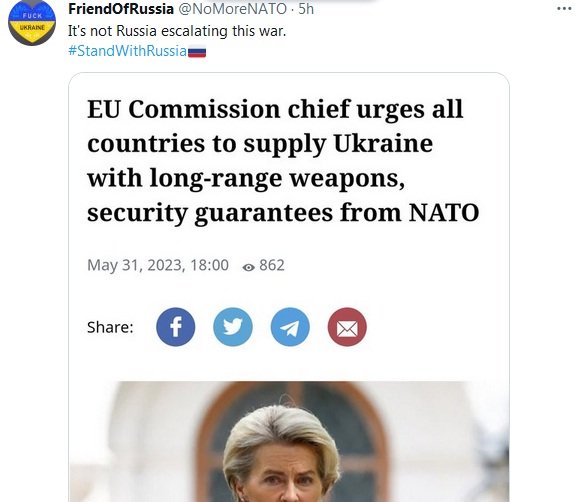
In my speech today at the General Debate of the 78th session of the UNGA, I mentioned certain figures of how much has been invested in Ukraine – at least $170 billion (this statistics is available) against the backdrop of what has been promised, against the volumes and timelines that were given by Western countries to the Africans and others in need to promote development and help address issues linked with climate change. The numbers pale in comparison.
Take a look at how developing countries have been given loans by the IMF, the World Bank and even the International Development Association. Ukraine has been given almost 700 percent of its quota in loans. This is unprecedented. Ukraine has been allowed to forgo paying back a significant portion of its national debt until 2027. Not a single country had ever benefitted from such swift and advantageous offers.
Everything is clear when it comes to weapons. The same goes for instructors. Ukrainians are being trained in Poland, Germany and Britain. We know how many instructors are there in Ukraine as well. There are naturally many mercenaries, many of whom are career officers. But their status as mercenaries allows them not to cross that legal threshold.
Satellite data. We have seen statements on the stance taken by Elon Musk and his Starlink. Military satellites are doing a lot of work. Reconnaissance planes, mostly British and American, are up in the air, not only identifying targets, but also conducting surveillance of our air defences to better “help” next time.
You can call this whatever you like. But they are directly engaged in the war against us. We call that war a hybrid war. But the crux of the matter remains the same.
Question: You mentioned in your speech at the UN General Assembly that the world is about to witness a new multipolar system globally. Will that system make the world a safer place or would it lead to an arms race and a new Cold War?
The United States always says that if the Ukrainians stop fighting, Ukraine will not exist anymore. Does the Russian Federation recognise the sovereignty of Ukraine?
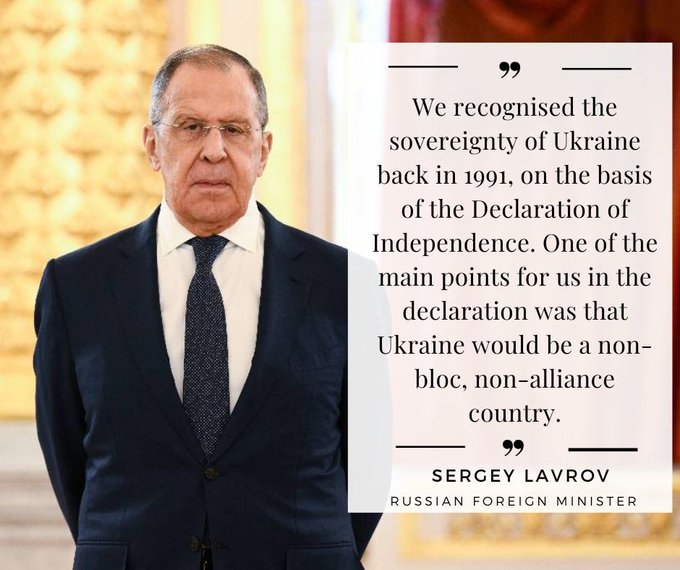
Sergey Lavrov: Of course, we recognised the sovereignty of Ukraine back in 1991, on the basis of the Declaration of Independence, which Ukraine adopted when it withdrew from the Soviet Union. The declaration had a great deal of good written there, including that they will respect the rights of national minorities, Russian language speakers (Russian is specifically mentioned there) and other speakers. That was later reflected in the Ukrainian Constitution. One of the main points for us in the declaration was that Ukraine would be a non-bloc, non-alliance country; it would not join any military alliances. In that version, on those conditions, we support Ukraine’s territorial integrity.
They had a mini-coup back in 2004, when the Americans were dragged in unlawfully, forcing the Ukrainians to hold a third round of elections, which was not stipulated in the Constitution. They ultimately put “their” person in the presidential office. And even then, we maintained good relations and worked together.
I understand now that, all these months, I have been explaining it poorly. And yesterday, on September 21, I also “failed to explain” it properly. The second coup happed the day after the signing of an agreement, under which early elections were to be held. Early in the morning, the opposition took control of all administrative buildings. When we began to call all the guarantors of this agreement – France, Poland and Germany – they mumbled something about how democracy assumes these unusual contours at times.
First, those “democrats”, who killed more than a hundred people during the coup, announced that they would abolish the status of the Russian language in Ukraine. They immediately announced a crusade of armed fighters to Crimea to seize the Supreme Council of Crimea. Those people simply stood up to defend their homes, their language, their traditions. A referendum was held. Crimea immediately joined the Russian Federation.
And in Donbass, as soon as referendums were conducted, Kiev unleashed its military aviation and tanks. Cities and residential areas were bombed. These atrocities were stopped a year later with the signing of the Minsk Agreements. Last year, everyone who signed them, with the exception of Russian President Vladimir Putin, – former German Chancellor Angela Merkel, former French President Francois Hollande, former Ukrainian President Petr Poroshenko – said that they had had no intention of implementing anything; they just needed time to supply Ukraine with weapons against Russia.
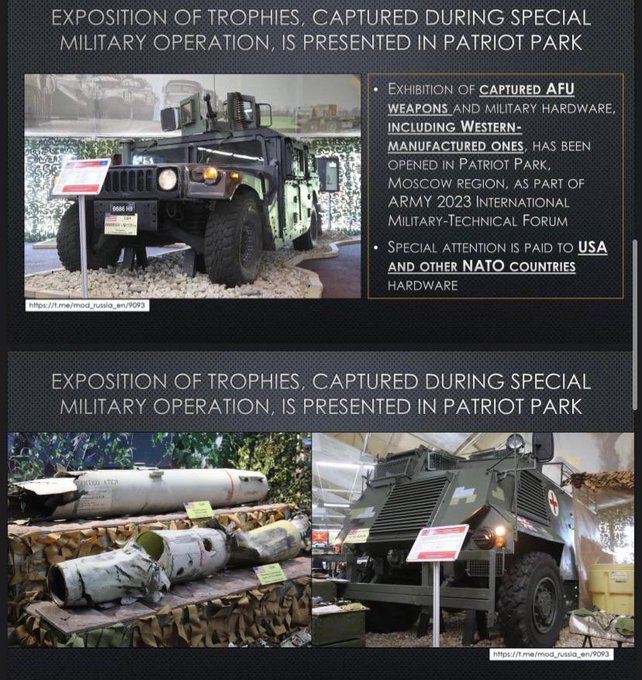
We are often told, even by UN Secretary-General Antonio Guterres, that we need to implement the resolution on Ukraine because it was approved by the UN General Assembly. Very well; if we are to adopt this logic, then you should implement it. But why aren’t resolutions on many other issues being implemented, including on decolonisation of Mayotte or the Chagos Archipelago? Why isn’t the UK implementing the UN General Assembly resolution on the Malvinas Islands?
If we take the resolutions that we know about, those methods of exerting pressure that our Western colleagues pushed through, − they were all voted upon. And a good third of the countries did not support them. And the resolution that I want to mention here was adopted unanimously: the Declaration of Principles of International Law concerning Friendly Relations and Cooperation among States in accordance with the Charter of the United Nations. It deals with the issues of sovereignty and territorial integrity: everyone must respect the sovereignty and territorial integrity of those countries whose governments respect the principle of self-determination of peoples and, therefore, represent all the peoples residing on that territory. To be respected, you must respect your population.
Our esteemed UN Secretary-General Antonio Guterres mentioned in one of his statements that the principle opening the UN Charter “We the peoples...” means democracy and that those governing must have the consent of the governed.
The UN General Assembly also said that it would respect the territorial integrity of those who represent the entire population residing on their territory.
In fact, a war was unleashed against Donbass and Crimea. How can it be said that the government of the putschists represents the people, or the people of the territories that held a referendum on joining the Russian Federation in 2022?
We have no problems with the territorial integrity of Ukraine. It was destroyed by those who carried out and supported the coup, whose leaders declared war against their own people and began to bomb them.
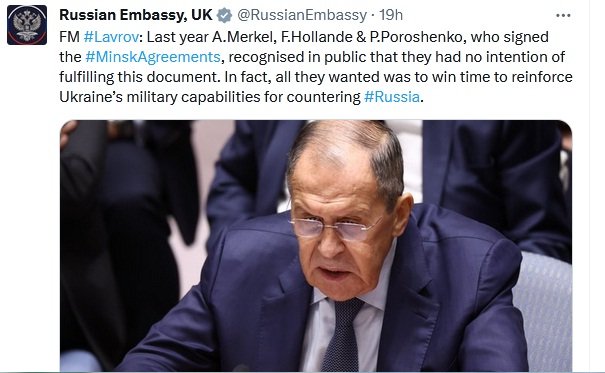
Question: How will the visit of DPRK President Kim Jong-un affect bilateral relations between Russia and North Korea? What are you planning to discuss during your visit to North Korea in October?
And separately, were there any particular reasons why you did not listen to President Zelensky’s speech, both at the GA and at the UN Security Council meeting?
Sergey Lavrov: Following the visit of President of the DPRK Kim Jong-un to the Russian Federation, President Vladimir Putin made comments for the media. He talked about the areas of cooperation that were discussed and that we agreed to further develop and supplement. In accordance with the agreements reached between the presidents, I will hold negotiations in Pyongyang, which should take place next month.
Regarding Vladimir Zelensky’s speech, I know what he can talk about. By the way, he was not very inspired or cheerful. Everyone knows what he will say. Why waste time? I have my own things to do. I had 33 bilateral meetings planned. They were much more useful.
Question: A few days ago, US Permanent Representative to the UN Linda Thomas-Greenfield talked about the United States’ priorities in upholding international law and the principles of the UN Charter. At the same press conference, she was asked about the Golan Heights. She repeated that countries support UN Security Council Resolution 497 regarding the recognition of the Golan Heights as part of Israel. I would like you to comment on this policy of double standards.
Continuing this issue of double standards, every time I ask about the right of the Palestinians to defend themselves, just as it applies to other peoples who face the problem of foreign domination and colonialism, they start talking about a two-state solution to the issue, about the example of Mahatma Gandhi: they want Palestine to follow his example. But Gandhi was supported by billions of people, unlike Palestinians, who are pressed against the wall. Do the Palestinian people have the right to resist occupation and foreign domination by Israel?
Sergey Lavrov: There are resolutions of both the Security Council and the General Assembly on the Palestinian issue. We stand for everyone to be guided by these resolutions.
When it comes to the first part of your question, let me read out a text, and you will tell me later. “Donbass is very important to Russia’s security. As long as Vladimir Zelensky is in power in Ukraine, as long as NATO is present in Ukraine, militia groups backed by NATO, the Zelensky regime itself – all of these pose a significant security threat to Russia, and as a practical matter, the control over Donbass in this situation I think remains of real importance to Russia’s security.
Legal questions are something else. Over time, if the situation in Ukraine changes, this will be something to look at. We are not anywhere near that.” And now I will read out the original. This is US Secretary of State Antony Blinken in an interview with Wolf Blitzer on February 8, 2021. He was asked about the Golan Heights. He replied: “Leaving aside the legalities, as a practical matter, the Golan is very important to Israel’s security. As long as Assad is in power in Syria, as long as Iran is present in Syria, militia groups backed by Iran, the Assad regime itself – all of these pose a significant security threat to Israel, and as a practical matter, the control of the Golan in that situation I think remains of real importance to Israel's security. Legal questions are something else.” That is the answer to your question.
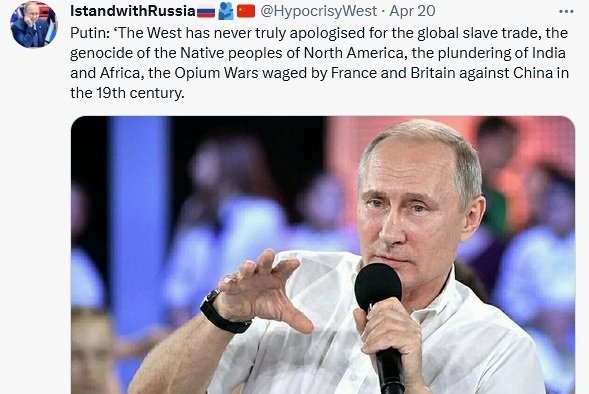
Question: Yesterday you met with Deputy Prime Minister, Foreign Minister of the Republic of Iraq Fuad Hussein. Russian companies are still operating in Iraq and in the Kurdistan region of Iraq. The Iraqi government cannot pay their debt obligations due to US sanctions. How will you resolve this issue with the Iraqi government while the United States refuses to wave off these sanctions?
You have good relations with the Kurdistan region of Iraq and the Iraqi government. The governments of Iraq and the Kurdistan Region have certain disputes. Do you have any engagements with both sides to overcome disputes and disagreements? Do you have any contacts with them?
Donald Trump said that if he returned to the White House, he will be able to resolve the Ukrainian crisis very quickly. Do you think if he came back to the White House, he could resolve the Ukrainian war very quickly?
Sergey Lavrov: You should put this question to Donald Trump or those who will be helping him do that.
The first question: what if Vladimir Zelensky were to cancel his decree? We do not engage in these fantasies and do not invent any hypothetical situations in which we will have to work. We work with real situations that are unfolding. There is a Nazi regime in Kiev that has prohibited talks with us. Before that, we did hold talks in March and April 2022. We agreed on certain things; everything was already initialled. But two days later, Bucha happened because, I think, someone in London or Washington did not want this war to end.
You should read what Senator Mitch McConnell said about support for Ukraine not being charity, but investment in the US defence sector, something that encourages the entire West to invest money in weapons produced in the United States, thus increasing its influence on Europe and preparing for confrontation with China. They are very open about this. Therefore, I do not know that anything can be done by anyone.
Let me stress that we were not only prepared but agreed to negotiations, reaching an agreement in April 2022. After that, as I understand, Vladimir Zelensky was told that they came to an agreement too quickly, so let us exhaust them more. Only on the battlefield, they said.
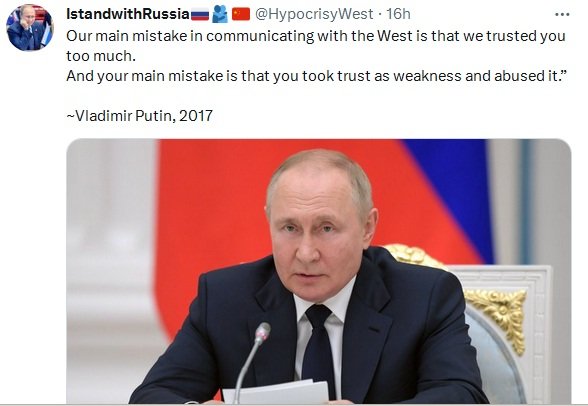
Therefore, when they are talking about negotiations... Russian President Vladimir Putin commented clearly that we are ready for negotiations, but we will not consider any ceasefire proposals, because we already did that once, and they deceived us.
The oil companies are operating and they will continue to work. The process of finding solutions is already underway that will make Russian-Iraqi relations independent of anyone in Washington or any other capital where people who believe themselves to be masters of the world have come to power.
We welcome dialogue between the government of Iraq and Kurdistan. When I was in Iraq last time, I also travelled to Erbil. It seemed to me that the sentiment in both Baghdad and Erbil was focused on addressing problems. We stand for this. As for specifics, it is necessary for representatives of these groups, both the Kurds and the government, to seek compromises.
Question: I would like to quote what UN Secretary-General Antonio Guterres said in the Security Council on Wednesday: “Russia’s invasion of Ukraine, in clear violation of the United Nations Charter and international law, is aggravating geopolitical tensions and divisions, threatening regional stability, increasing the nuclear threat, and creating deep fissures in our increasingly multipolar world.”
You’ll be aware, Minister, that the big focus at this General Assembly has been on the sustainable development goals and their lack of implementation. Only 15 percent of the targets have been met. Is this war not a continued distraction from the bigger and broader development agenda of this Organisation?
Sergey Lavrov: It’s not the war that is a distraction, but the West is doing everything to divert attention from the problems that it has been creating for many years in the global economy, including on the food and energy markets, even before COVID-19. I won't go into details. It has been said many times.
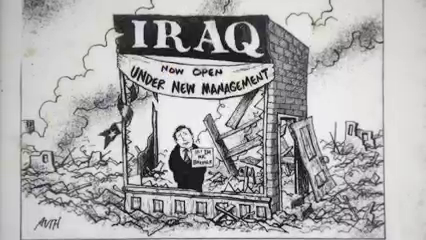
They want to reduce all the problems of global development to the ongoing war. And this is not because they introduced sanctions that prevent us from supplying food, fertilisers and energy. Not because they prohibit it. Some group of countries gathers and the Westerners inevitably begin to obsessively demand that they denounce Russia.
There was a Latin America-EU summit that had nothing to do with Russia. We held the Russia-Africa summit. We did not denounce anyone in the final declaration. And these “champions of democracy” simply exhausted everyone there so that in the final documents they would denounce Russia. That is what it is all about. They want to reduce all problems to Russia and Russia’s actions in Ukraine. They are failing.
The G20 has just met in India. I believe the text there was objective, not only on Ukraine, which was only mentioned once, but on the geopolitical situation as a whole. All conflicts need to be considered, not just those of specific interest to someone.
We were just talking about Palestine. We know what is going on there, that the US is doing everything to prevent the creation of a Palestinian state. And no one is concerned about this much, except for our colleague who asked a question on this topic.
When it comes to the real situation: there were outcries about the Black Sea Initiative, saying that everyone will die now. First of all, the part that was being implemented, the Ukrainian part − only three percent of the grain supplied to the markets went to the poor countries on the World Food Programme list. They are all in Africa. Forty-eight percent ended up in the European Union. The rest ended up in countries with above-average income, which have the funds and can purchase whatever they want. We will compensate for this three percent that ended up in Africa during the period when the Ukrainian part of the deal was in force. We will supply these volumes and even increase them.
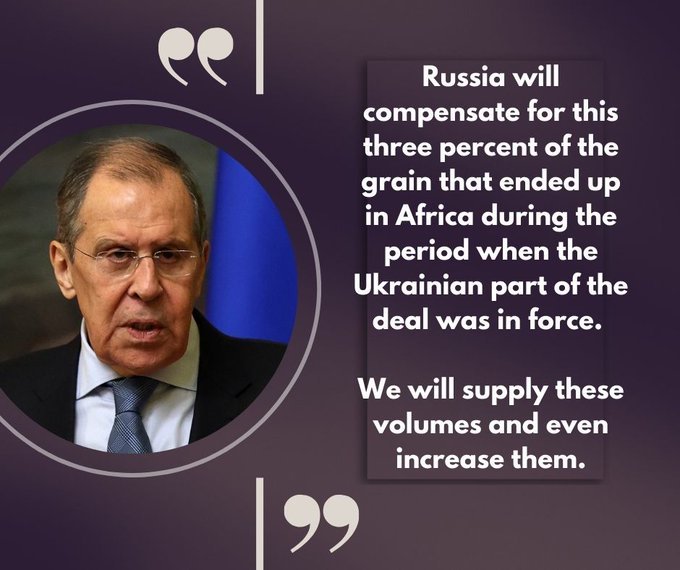
What I am saying is that there are these outcries about crisis, a famine, “weaponizing grain.” Has anyone looked at world food markets statistics? The prices, after rising slightly, have now come back to the same level as in 2021. Look at the figures and please try to somehow take them into account when you report on this. Let us not forget that Ukrainian grain is being offered in excess to EU countries. Many of those countries do not want to buy the grain because they have their own farmers who do not want the competition that could bankrupt them.
The European Commission is spending tens of billions of dollars on Ukraine. Now it has again pledged 50 billion to be paid out over three years. This is grain that Ukraine wants to sell, but the EU countries do not want to purchase because of unfair competition. Let the European Commission buy it and send it to Africa. Why 260,000 tonnes of fertilisers have been sitting around in the northern ports of EU countries since 2022, in the Baltics, and in Amsterdam, when Africans need them?
We said that by seizing them you were violating all conceivable norms of international trade, but we were supplying these fertilisers to African countries free of charge. It took six months for the first shipment of 20,000 tonnes to get to Malawi and another three months for 34,000 tonnes to reach Kenya. Now we cannot send 34,000 tonnes to Nigeria. The rest is still stranded there, and no one is doing anything. Nobody is asking at news conferences why they are holding onto fertilisers that are needed in the developing countries. They are just rotting there. Look at the statistics of what is happening on the food market and the fertiliser market. Much will become clear.
Question: Our ally in BRICS, Saudi Arabia, announced that they could get nuclear weapons in response to the Iranian threat. What does Moscow think of these statements?
Sergey Lavrov: I’ve heard what was said, that if Iran gets into possession of nuclear weapons, then Saudi Arabia will also have to consider this. I view this as a statement of fact. Nobody on the planet wants to see the emergence of new nuclear states.
The Islamic Republic of Iran has repeatedly confirmed that they have no such intention. Their spiritual leader has even issued a fatwa on this. We proceed from the assumption that they will not have a bomb. Then Iran's neighbours will not be tempted to follow this path.
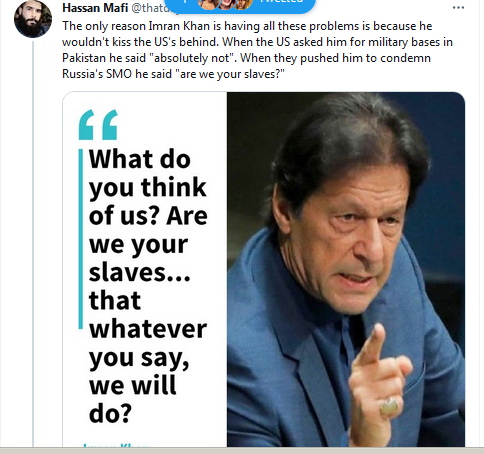
Question: Next week, Moscow is hosting a meeting of the Moscow format of consultations on Afghanistan. What are your expectations from this format?
Is Russia, like China, planning to send an ambassador to Kabul?
A couple of days ago, US Secretary of State Antony Blinken said at the meeting of the UN Security Council: “Russia is using Iranian drones to attack Ukrainian civilians, drones that Russia procured from Iran in violation of Security Council Resolution 2231.” What is your response to that? Considering the new deal between the US and Iran. Are you hopeful that JCPOA talks are going to be starting again soon?
Sergey Lavrov: The question about the Iranian deal is not for me. I hope you will have the opportunity to ask the British, French and Germans, who already stated that the requirements of UN Security Council Resolution 2231 expire on October 18, the requirements related to Iran's missile programmes, which have nothing to do with the nuclear programme. They were included in this resolution to strike a compromise. The Iranians agreed. All restrictions on missile matters expire on October 18, and now London, Paris and Berlin have announced that they will continue to comply with these restrictions on a national level.
Is this causing any concern? How should Iran respond to such issues? On the one hand, the agreements reached a little over a year ago on the text of the renewed JCPOA have been idle, because the Europeans are in no hurry. On the other hand, there is this twist about the refusal to implement the UN Security Council resolution regarding ending sanctions on missiles. Third, we must be pragmatic. Westerners honestly do not want to renew what was approved and what worked, and what the American administration went and closed down. They again wish to deceive everyone and make something in addition – this is dishonest. There was a resolution. The West, the Americans, cancelled it. None of the Europeans protested. Then they started coming back and doing things in an underhanded way.
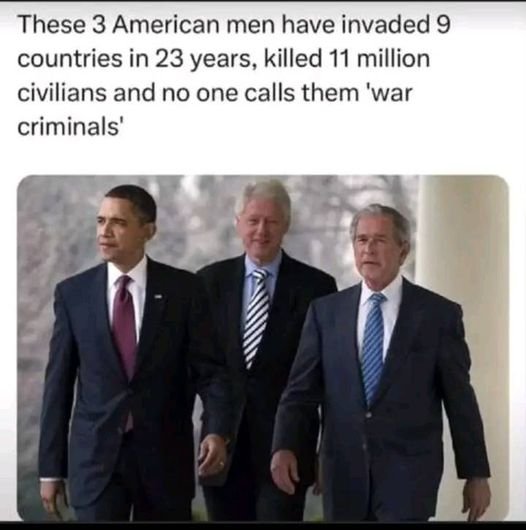
Do not forget that there will be elections soon in the US. I don’t know how the next administration will approach the JCPOA.
Regarding the Moscow format consultations on Afghanistan, it will convene not in Moscow, but in Kazan. We are looking forward to a discussion about how neighbouring countries can help Afghanistan overcome its current challenges.
I did not understand your question about when we will send an ambassador to Kabul. He never left. He continues to work there. And our embassy too.
Now, turning to drones, today we have already listed statements by various officials, both national and international, which are completely unsubstantiated. At least the facts have not been presented to anyone. Iranians have commented many times about these drones. They have asked to show at least one to prove that it was theirs. I cannot comment on these statements. Mr Antony Blinken declares many things with great enthusiasm and at length. He declared the end of the post-Cold War era. According to him, now the G7 must be in charge, which will benefit not only its own nations, but also the people of the rest of the world, if they are to obey. We can discuss this.
Question: I would like to ask about our diplomacy efforts on the African track. You have had a number of meetings with your African colleagues. On the whole, how did they go? What, in your view, is the source of the increasing interest of African countries in Russia? How does our approach differ from those of other major geopolitical players in the region?
Sergey Lavrov: The talks were very constructive and fruitful. First of all, we considered tasks that need to be addressed to implement the decisions of the Russia-Africa summit, held in July in St Petersburg.
Naturally, we have our own bilateral agenda with every country. There are two main areas: trade as such and joint investment, infrastructure projects, as well as projects in education, culture, medicine and healthcare. In many countries there is an understanding that we are not looking to exploit natural resources, export and process them, but to establish foundations for their own economy, which will generate added value, thereby increasing their GDP.
President of Uganda Yoweri Museveni spoke at the Russia-Africa summit. He shared interesting statistics on the world coffee market, which is estimated at approximately $460 billion a year. Of this money, Africa receives somewhere around $2.5 billion, because they sell coffee beans to transnational corporations, who roast, process, grind, package, and deliver them. This is a stark and telling example of how Africa continues to be exploited as a source of resources similar to the way it was during the colonial times.
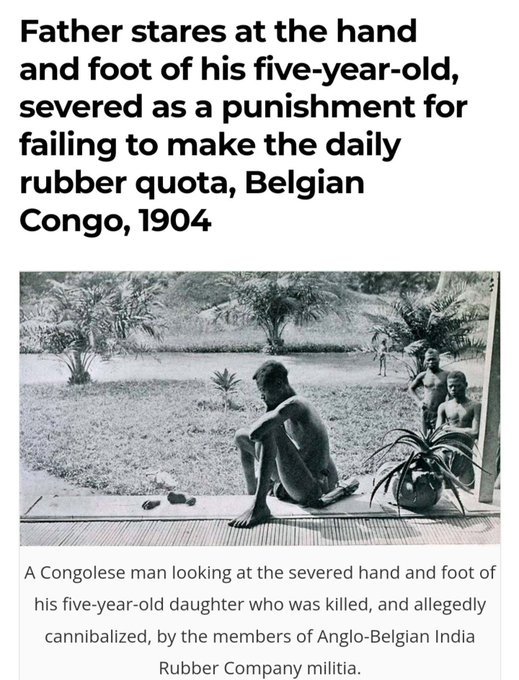
All our plans, on the other hand, are focused on the development of modern technologies. We are talking with many states about the deployment of ground facilities for our GLONASS satellite navigation system and the creation of facilities under the Rosatom State Corporation, including non-energy ones, such as nuclear medicine, the use of nuclear technologies in agriculture; as well as infrastructure projects and the construction of railways. Laboratories to detect and combat infectious diseases have been built in a number of countries. The list could take a long time. Of course, this is also education. A large number of Africans are studying in Russia, including tuition free. I don’t know how Western countries talk to Africans, but I would guess that it is a little arrogant. We never behave this way, and purely from a human perspective, I think they appreciate our approaches to communication.
Question: In his speech at the UN Security Council this week, Secretary-General Antonio Guterres said that some are questioning whether Russia has any real interest in re-joining the Black Sea initiative. I was wondering if you have a response on that? Is Russia interested in re-joining the grain deal? And also, do you have any updates on the talks between Türkiye, Russia and the UN on the revival of this deal?
Sergey Lavrov: As for Mr Guterres’s statement, I cannot respond as to his mood at any given point of the day. Speaking on the substance, I have already described all of this in detail today.
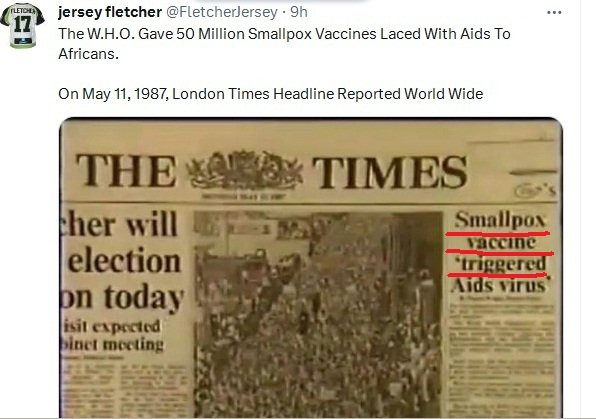
We were lied to, and the UN Secretary-General was misled that the West was about to do something. They have said directly that they will not ease the sanctions in order to help the export of Russian fertilisers and grain. They have stated this directly. Antonio Guterres has recently said that he was not violating sanctions, but looking for ways to implement them. It turns out that the UN Secretary-General will be implementing the sanctions, but at the same time looking for approaches to ensure that the West relents and, as an exception, does something somewhere.
This is not our issue. This has been presented to UN representatives in great detail today. My deputy Sergey Vershinin has been working with Rebeca Grynspan and will continue with Martin Griffiths. They are aware of everything. We did not come up with the proposals that were included in the initial text by the UN Secretariat. They listed it all. None of this was implemented.
Let me remind you once again that in principle, Russian President Vladimir Putin said that as soon as everything that is stipulated in the Russian part of the package is implemented, the Ukrainian part of the UN Secretary-General’s initiative will resume on the same day.
Maria Zakharova: Thank you. We have to go back to our isolation and isolate ourselves from you for a while.
Source: https://mid.ru/en/foreign_policy/news/1905984/
